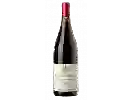
Domaine de la MabillardMethode Traditionnelle Vouvray Brut
This wine is a blend of 3 varietals which are the Chardonnay, the Pinot blanc and the Pinot noir.
This wine generally goes well with pork, vegetarian or poultry.
Food and wine pairings with Methode Traditionnelle Vouvray Brut
Pairings that work perfectly with Methode Traditionnelle Vouvray Brut
Original food and wine pairings with Methode Traditionnelle Vouvray Brut
The Methode Traditionnelle Vouvray Brut of Domaine de la Mabillard matches generally quite well with dishes of veal, pork or game (deer, venison) such as recipes of veal roast casserole with mushrooms, wild boar bourguignon or duck aiguillettes.
Details and technical informations about Domaine de la Mabillard's Methode Traditionnelle Vouvray Brut.
Discover the grape variety: Chardonnay
The white Chardonnay is a grape variety that originated in France (Burgundy). It produces a variety of grape specially used for wine making. It is rare to find this grape to eat on our tables. This variety of grape is characterized by small bunches, and small grapes. White Chardonnay can be found in many vineyards: South West, Burgundy, Jura, Languedoc & Roussillon, Cognac, Bordeaux, Beaujolais, Savoie & Bugey, Loire Valley, Champagne, Rhone Valley, Armagnac, Lorraine, Alsace, Provence & Corsica.
Informations about the Domaine de la Mabillard
The Domaine de la Mabillard is one of wineries to follow in Vallée de la Loire.. It offers 2 wines for sale in the of Loire Valley to come and discover on site or to buy online.
The wine region of Loire Valley
The Loire Valley is a key wine region in western France. It follows the course of the Loire River on its Long journey through the heart of France, from the inland hills of the Auvergne to the plains of the French Atlantic coast near Nantes (Muscadet country). Important in terms of quantity and quality, the region produces large quantities (about 4 million h/l each year) of everyday wines, as well as some of France's greatest wines. Diversity is another of the region's major assets; the styles of wine produced here range from the light, tangy Muscadet to the Sweet, honeyed Bonnezeaux, the Sparkling whites of Vouvray and the juicy, Tannic reds of Chinon and Saumur.
The word of the wine: Muscaté
Wine reminiscent of the characteristic aromas of fresh muscat grapes.










